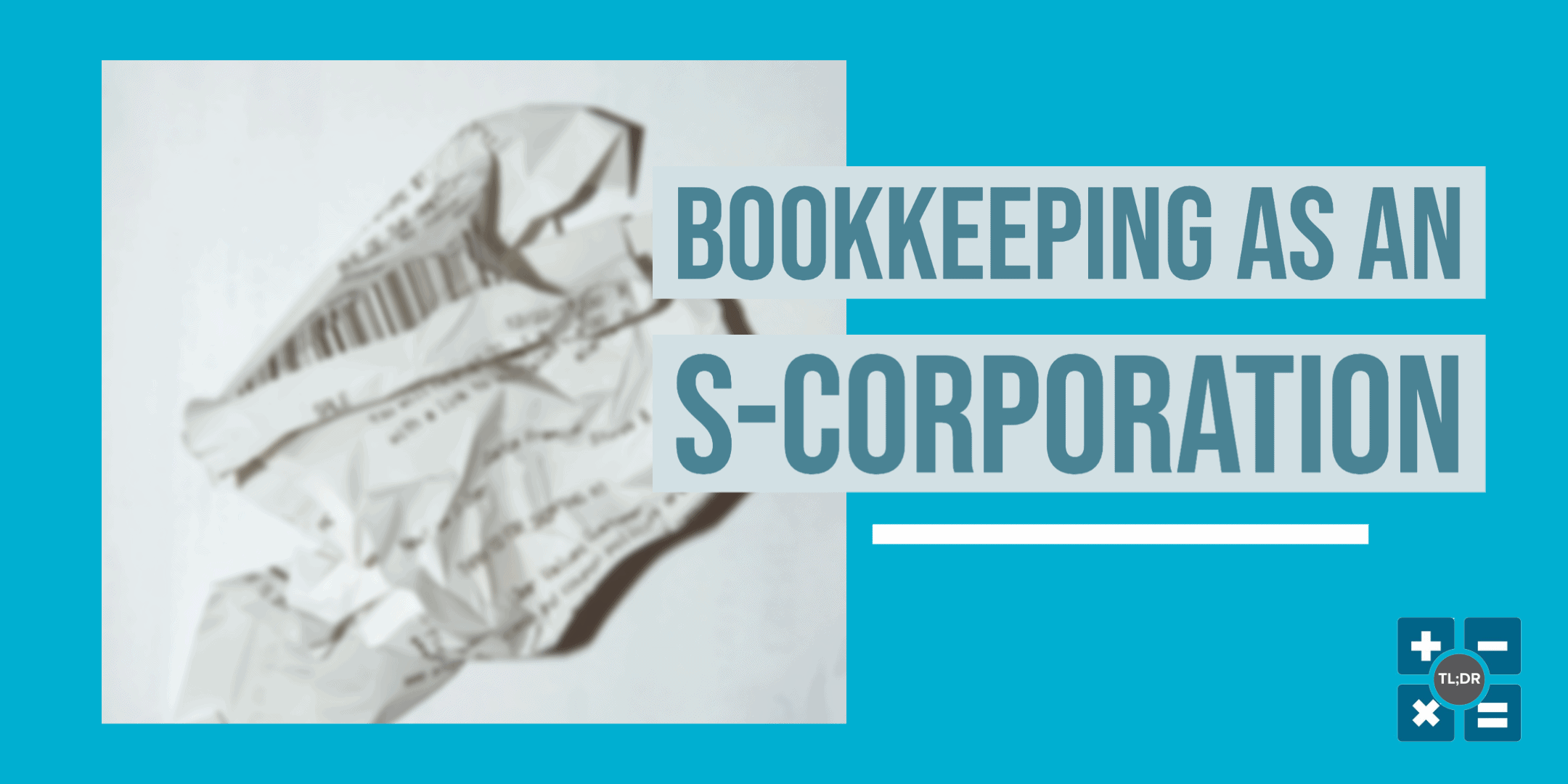You made your S-Corporation, you know the rules, and now you’re wondering: do you need to run your books differently now? Let’s talk about the requirements and best practices.
S-Corp Bookkeeping Payroll Requirements
Yes, as an owner-employee of your S-Corporation, you are now an employer even if you weren’t one before. Payroll introduces a whole host of reporting, deduction, and remittance requirements. Thankfully we can put all requirements into a convenient list:
- Items upon hire:
- W-4: Fill one out and keep it on file. This is the form that you use to determine your number of withholdings. It can be found here (for 2019). (If you use Gusto, you’ve likely already filled out one of these forms, same with the two items below.)
- I-9 employment eligibility for the Dept of Customs and Immigration Services: You can find I-9’s here.
- New Hire reporting: this is a way for Washington State to locate employees who owe back child support. The form can be found here.
- Recurring items:
- 941 quarterly reporting here, to report and reconcile withholdings.
- 940 annual reporting here for federal unemployment.
- L&I quarterly reporting here (for worker’s comp).
- Unemployment compensation quarterly reporting here.
- The new Washington State Paid Family and Medical Leave quarterly report here.
- Annual W-2 for employees and W-3 for federal agencies.
- You will need to regularly remit payroll withholdings to the federal government, but the timing of these depends on the nature of your payroll.
- This is important: Once you pay an employee, it’s generally a very bad idea to alter anything on their paycheck as recorded in your books. This can cause you headaches later on when it comes to payroll reporting and remittance, and certain alterations could put you in fraud territory. When in doubt, ask an expert!
If payroll all sounds like a bit much, we have good news for you: Thanks to the wonders of technology, there are cost-effective services that can automate most of these items, and make it convenient for you to finish the rest. Here at TL;DR: Accounting, we use and recommend Gusto — and we are very thankful for it!
Keep in mind that all of the above steps are required for all employers and not just S-Corporations. The difference here is that every S-Corporation is an employer due to the nature of S-Corporations.
Requirements for S-Corporation Taxes (Form 1120S)
Now that we have the payroll discussion out of the way, let’s talk about what you need to do in order to file your Form 1120S, the S-Corporation tax return. Remember that even though S-Corporations don’t pay taxes, per se, they still need to justify the dollar amounts that are passed through to your tax return in what the IRS calls an informational tax return. You must:
- Separate gross income from net income. This means you have to show the total amount you’ve made the previous year, then separately state returns and allowances.
- Show Cost of Goods Sold (COGS), the direct costs involved in selling your goods or performing your services. If you’re a jam chef, then the cost of the fruit, jars, and packaging are COGS. If you’re a zoo dentist, then COGS would include toothbrushes and (I hope for your sake) breath mints for the zoo animals.
- Identify other income and losses. There is a laundry list of items that go here that is subject to change, (though by 2020 the above link will be outdated). It can save you time to separate these items during the year, before tax time.
- Separate officer income from the income of your employees, if any.
- Keep track of your estimated tax payments so that you can record them on your tax return.
- Maintain an accurate Balance Sheet (that balances) and Income Statement. You will be expected to reconcile your book income to your tax return income.
- Keep a close eye out for any equity transactions, that is to say, any distributions, contributions, personal expenses paid by the company, and things of that nature. The dollar value of your ownership of the S-Corporation will be calculated every year on your 1120-S.
S Corp Bookkeeping Best Practices
- Update your books at least every month. This is a best practice regardless of what kind of business you run. If you let more than a month go by before classifying your expenses, your memories become foggy and receipts have this odd tendency to vanish over time. TL;DR has a monthly accounting package on offer for you, complete with monthly P&L and Balance Sheet reports!
- There are generally no monthly or quarterly financial reporting requirements for private businesses, but if you take out a bank loan you may be required to send them financials on a regular basis per your loan covenants. Regardless, it’s best to complete and file at least quarterly financials for your own purposes, if only to track the profitability of your operation.
- If you have more than a few transactions per month in your business, it would behoove you to purchase quality bookkeeping software and consider outsourcing your bookkeeping — contact us to see if we’re a good fit!
TL;DR: You can do things that hard way, or the easy way. We recommend payroll software, and having your taxes done professionally for businesses.
You can book a quick 30 minute session with one of our friendly accountants here!






